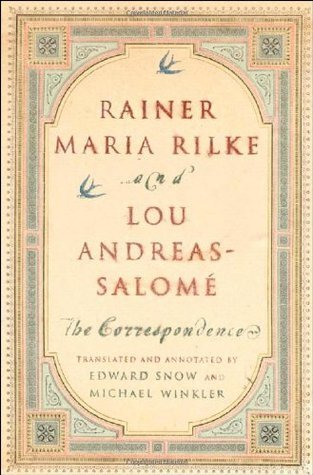
At the time of his death in 1926, Rainer Maria Rilke was considered the ur-poet of the twentieth century, and it seems as if every modern poet feels they must prove their worth by offering yet another translation from Rilke’s Sonnets to Orpheus or his Duino Elegies. Reading Rilke’s collected letters, one finds repeated evidence that he put the writing of poetry above all else; his health and his personal relationships suffered as a result. Rainer Maria Rilke and Lou Andreas-Salomé: The Correspondence (Norton) collects all of the extant letters exchanged by Rilke and Andreas-Salomé , a patron and fellow author, and (as the jacket copy describes her) “a key fin de siècle intellectual” fifteen years Rilke’s senior. Andreas-Salomé was a fascinating individual in her own right, “intimate of many of the greatest thinkers of the time,” including Nietzsche and Freud. She exercised a great deal of influence over the young poet (it was she who urged him to drop his given name, René, for the “plain, fine German name” Rainer) and helped to steel him in his ascetic life. This is the first English-language edition of the complete correspondence, and the translation (by Edward Snow and Michael Winkler) is clear and unobtrusive. The letters provide a fascinating insight into the artistic temperament of an influential poet, during a period when poetry still represented the peak of the literary arts.








